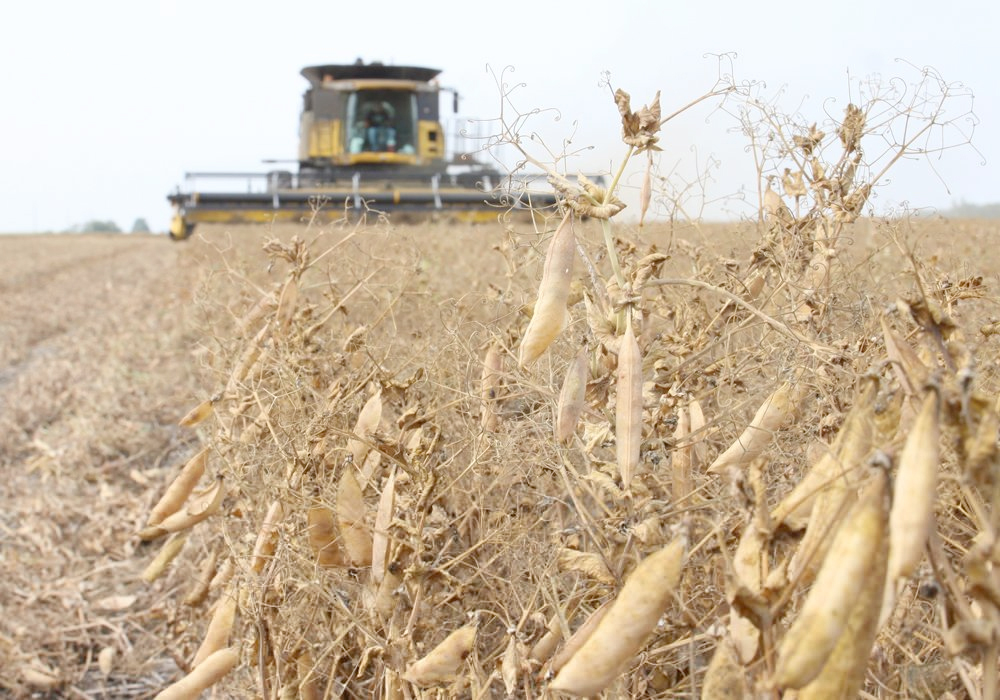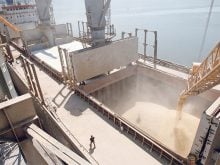UPDATE: December 8, 2023 – 1415 CST – for the latest version of this developing story, click here.
SASKATOON — India is temporarily dropping its prohibitive import duty on peas.
The 50 percent duty is being removed starting Dec. 8, 2023, through March 31, 2024.
Read Also

Russian wheat exports start to pick up the pace
Russia has had a slow start for its 2025-26 wheat export program, but the pace is starting to pick up and that is a bearish factor for prices.
“This is the first time in six years that we have seen a bit of an opening on peas, so I want to emphasize that this is good news,” said Greg Cherewyk, president of Pulse Canada.
The duty was first implemented in November 2017.
The hope is that this will lead to a resumption of trade with what used to be Canada’s top pea market.
Sales peaked at 1.59 million tonnes in 2011. They began to freefall in 2018 and have been essentially non-existent the last few years.
Cherewyk said it is too early to be forecasting a huge resurgence in exports because it is unclear what is happening with the other trade restrictions that India implemented in early 2018.
He doesn’t know what is happening with the quantitative restriction limiting total annual pea imports to 150,000 tonnes, the price limit of 200 rupees per kilogram or the constraint that the crop can only be imported through the Port of Kolkata.
Pulse Canada has contacted Indian and Canadian government officials as well as members of the trade seeking clarification.
“We haven’t got any answers yet,” said Cherewyk.
“We understand that there is going to be more clarification coming.”
The impact of India’s abrupt policy pivot will largely depend on the answers to those questions.
Cherewyk can only guess why India has suddenly suspended the punitive duty.
“It’s probably safe to say that governments around the world are taking action to reduce the cost of living and food is a major contributor to that cost,” he said.
Others have speculated that India’s rabi or winter chickpea crop is off to a bad start due to El Nino-related dryness. Yellow peas are used as a substitute to desi chickpeas in India.
If all the import restrictions have been dropped, then Canadian exporters will be scrambling to get product in export position in time to meet the looming March 31, 2024, deadline.
Contact sean.pratt@producer.com
















